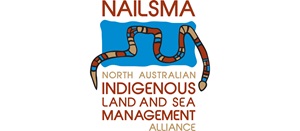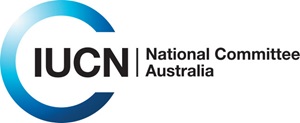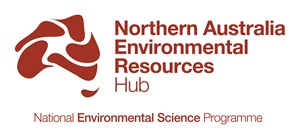The challenge
Empowering Indigenous people to lead 'Our Knowledge Our Way' in land and sea management.
Indigenous Australians rights of ownership and management have been recognised over nearly half of Australia, and their knowledge systems connect them to their Country and cultures. As significant landowners, managers and custodians, Indigenous peoples are applying their knowledge in caring for Country, generating many benefits and learning how to build on these successes. Researchers and policy makers tasked with solving Australia's complex environmental challenges are noticing many beneficial outcomes from Indigenous peoples applying their knowledge in management and seeking ways to grow these positive impacts.
However, there are many challenges for both Indigenous peoples and their partners in working with Indigenous knowledge—misappropriation and misuse of knowledge is common. Too often Indigenous knowledge has been commercially exploited without benefits flowing to communities, used without consent and in ways that are considered harmful by Traditional Custodians. Examples of good, Indigenous-led practices for strengthening and sharing knowledge are urgently needed.
The Our Knowledge Our Way in caring for Country Best Practice Guidelines, gives a voice to Indigenous land and sea managers who have found good ways to strengthen their knowledge and build partnerships for knowledge sharing in caring for Country.
Our response
To support a step change in learning, by both Indigenous people and their partners, about best practice ways of working with Indigenous knowledge to look after land and sea Country.
In partnership with the North Australian Indigenous Land and Sea Management Alliance (NAILSMA), and with support from the Australian Committee of the IUCN, we answered a call from the Indigenous-majority Project Steering Group to develop a set of Best Practice Guidelines for working with Indigenous knowledge in land and sea management that would:
- Empower Indigenous people to look after Country 'our way'.
- Improve environmental conditions and recognise the multiple social, cultural and economic benefits that come from effective Indigenous adaptive management of Country.
The Best Practice Guidelines are Indigenous-led, based on an open, transparent process established by the Project Steering Group of calling for Indigenous Peoples to submit case studies that demonstrate best practice in working with Indigenous knowledge. Indigenous leadership of the Guidelines occurred through:
- Indigenous-led Project Steering Group.
- Indigenous-led case studies.
- Indigenous lead co-authors for each chapter.
- Indigenous review, consultation and input.
- Face-to-face discussions about the Guidelines at meetings and workshops.
The results
Over 100 Indigenous individuals and organisations, including partners, co-authors, case-study providers and reviewers, contribute to the development of the Best Practice Guidelines.
The Our Knowledge Our Way Guidelines showcases innovative ways in which Indigenous people are working with, and strengthening, their knowledge to build sustainable futures through their land and sea Country.
The Guidelines are based on 23 Australian case studies, submitted by Indigenous people and their representative bodies, that show how Our Knowledge Our Way in caring for Country can be supported through:
- Strengthening Indigenous knowledge - including through creating and maintain access to land and sea Country; ensuring strong cultural government of Indigenous knowledge; and keeping and revitalising knowledge, language and culture through programs and practice.
- Strong partnerships – that enable the building of respect and appreciation for Indigenous knowledge; development of protocols to guide knowledge sharing; and engaging with the principles of free, prior and informed consent
- Sharing and weaving knowledge - Indigenous managers often weave knowledge to manage new and complex land and sea management issues. Indigenous-led and co-developed tools are most appropriate, and those that promote inter-generational transfer of knowledge are highly valued.
- Indigenous networks – National and global networks that promote Indigenous knowledge practices are important as they offer peer-to-peer learning opportunities for Indigenous land and sea management practitioners. They support
- Learning about good partners, projects and approaches to keep
knowledge strong
- Learning from others about best-practice protocols and processes for managing partnerships, and
- Building strength and inspiration through solidarity.
- Learning about good partners, projects and approaches to keep
"Indigenous knowledge is so important to fixing some of the issues that we see in in modern Australia. We know this Country, we speak this Country, we sing this Country, we dance it, and it's a key part of who we are. And in their relationship with Country, Indigenous people are best placed to give advice because having that value of Country and water and the knowledge that comes with that - and the laws that protect that - is key to the way we fix the problem."
— Brad Moggridge, Lead Author - Chapter 4.
These Guidelines are a key output from a project of the Australian Government’s National Environmental Science Program, Northern Australia Environmental Resources Hub, titled Knowledge Brokering for Indigenous Land Management.
Related to this page
- Downloadable OKOW resources
- Our Knowledge Our Way's launch questions and answers
- North Australian Indigenous Land and Sea Management Alliance
- National Environmental Science Program’s (NESP)
- International Union for Conservation of Nature (IUCN) Australia
- Launch of the Our Knowledge, Our Way in caring for Country




